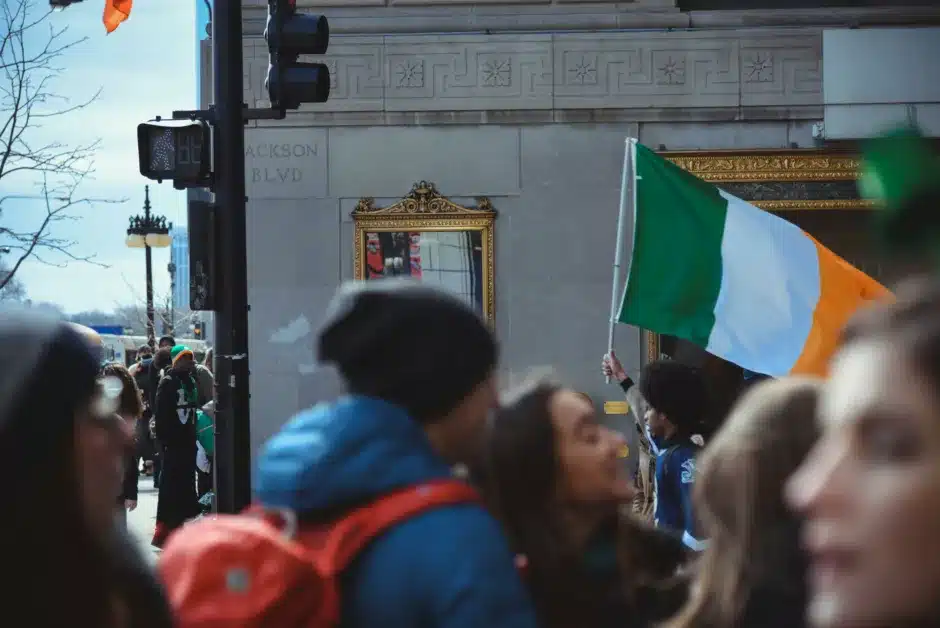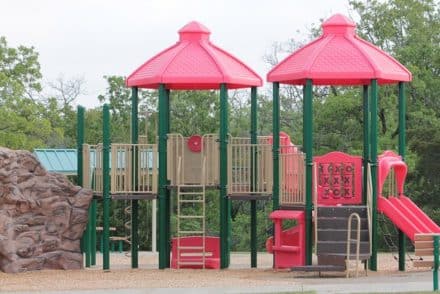This story may not be for the faint of heart. Current times might call for a trigger warning; this story involves substance use, mental illness, suicide and death. In balance with these dark truths comes a tale of love, perseverance, and the essence and strength of family ties.
As family stories go, sometimes its difficult to know where to start. Perhaps I should begin with what I know best, me. I am the youngest of four daughters, born into a metro Detroit, working-class family, with parents that were typical of the times. Three of us girls were “tow haired” blondes, with one brunette thrown in to keep things interesting. Dad was in a union blue-collar job. Mom was home raising us kids. Mom liked to get her teased up hair “frosted” as was popular in the 70’s and couldn’t have weighed more than 115 pounds on her 5’ frame. In the chaos of rearing four girls, each about a year apart from one another, she managed to simultaneously sew us God awful 1970’s patterned clothing (with the likes of plaid designs, bucket hats, and an especially distinctive pair of bell-bottomed pants made from a 7-Up pattern material) bowled weekly with the ladies, and had a meat and potatoes dinner on the table every night at 5 for Dad.
All four of us sisters shared a small bedroom when we were pretty young, and eventually had two to a room after a modest addition to our house. I didn’t realize it at the time, because it didn’t necessarily feel like we had much growing up, but we kids were blessed with something better than gold. We had stability, learned a sense of right and wrong, and knew that no matter what, we always had each other. It was a recipe for a family foundation of granite. I never truly understood how rare and valuable this gift was until I was a bit older. Though on the surface our childhood might appear idyllic, there were troubled currents just below the surface.
My Dad was a contrast of character strengths and weaknesses. He was a handsome, short-statured man, with a face framed by dark, curly, short hair and emerald colored eyes that twinkled after a few beers. As a kid, I remember my Dad’s two sisters, rather vaguely to me at the time, advising us girls to forgive my Dad for his flaws, alluding to a deeper, hidden past we didn’t understand. On the one hand, my Dad was hard working, instilling in us girls a oxen-like work ethic. We learned not to ask for things. As teenagers we had babysitting and other jobs to obtain most things beyond our basic necessities. However, Dad was generous at Christmas, helping to make our holidays special growing up. He passed on a moral code that included consideration for those less fortunate in life. I recall him helping an elderly lady, unknown to us, home from church after she fell outside on the church steps. Once, as a small kid, I was making an ignorant comment about a kid that was probably mentally challenged, and my Dad, in a patient tone, taught me never to be unkind to people that were born with afflictions outside of their control.
These childhood lessons, now hard-wired in my brain, have made me a better human. There was a somber side of my childhood as well. My Dad had a temper that often got the better of him and us. He would get angry if he heard us giggling or talking when we were supposed to be sleeping as small children. He would explode, possibly throwing a shoe at us to make his point. I recall if something got broken in the house being rounded up together, as if in a criminal line up, to suffer the consequences. The guilty party was spanked; therefore, confessions were never forthcoming. The only sounds were fear-filled tears, of course followed by threats of “I’ll give you something to cry about!”. One of the most shameful elements of my childhood was my problem with bed wetting. Control of this problem was ever elusive to me when I was young, yet I suffered the disgrace of my Dad’s temper in the morning non the less. Fear, like most things, can be a double-edge sword; fertilizing your growth or shrinking your spirit like Roundup on a weed. Now, as I reflect on my aunts’ revelations that my Dad had some demons in his past, it turns out in fact, there were some neon lights illuminating his struggles, as both a human and parent.
Now you may be wondering where does the immigrant story fall into place here. My Dad’s parents were both Irish immigrants, whom sadly, I never had the privilege to know. Our Irish roots instilled pride and was the steel of our family bond. As a kid, I remember my Dad advising me that the only ones you can truly count on are family. Grandpa Frank, tall and thin, was from Tralee in County Kerry, eventually landing in Detroit after serving in World War I. My Grandmother Delia, diminutive in frame, with large, kind eyes, came from County Sligo, meeting and marrying my grandfather in Detroit. I recall hearing tongue in cheek stories as a kid, that our Irish relatives settling in Detroit in the 1920’s were kind enough to facilitate the flow of spirits during the dry times of prohibition, hiding the booze in a wagon by having the kids sit atop of it in transport. Additionally, my Grandpa fit the Irish immigrant stereotype, by serving as a Detroit cop for a time. He eventually opened his own pub in Corktown, fittingly titled Shamrock Bar. Family lore would indicate this is when things began to sour for this newly established American family.
Dad was the youngest of 6 children, all born in the 1920’s and 1930’s. This was a family of small framed, fighting Irish. My two porcelain-skinned aunts were beautiful, one raven haired, and the other with an auburn tint. The boys were handsome as well, with muscular frames, with dark hair and eyes the color of the sea. My oldest two uncles served in WWII. Notably, both were captured by Germans and held in prisoner of war camps. We didn’t hear much about their experiences though. The stoicism of this generation did not embrace private or public sharing of the troubles they endured. Men during that time, and most definitely those in our family, preferred certain things be left unsaid.
These two oldest boys proved to have opposite outcomes upon return from the war. My oldest uncle went on to college to become an engineer, get married and raise a family. He was outgoing and friendly, with a true Irish “gift of the gab”. At family parties, with all of us cousins ranging from little to big, he would throw change into the grass and we would dive in to see who could find the most money. Maybe this sounds odd, but us kids loved it! A quarter back then could buy a bagful of candy at the corner store. My sisters and I also had fond memories of him paying us to take a bite of his homemade pickles (which we hated and I don’t think I ever did- cash or no cash).
Alternatively, the immigrant’s second son did not fare so well in life. I recall asking my Dad about this brother, who died before I was born, and I was quickly admonished that “we don’t talk about that” with the pain evident in his voice. History and truth can become blurry, especially when hidden under a veil of shame and sadness. This was especially the case with our family history of mental illness, substance abuse and trauma. I learned at a young age; these were among the things left unspoken and thereby maybe could become less real.
Family stories point a crooked finger at my grandfather. The story goes that he only had time and attention for his eldest son, shunning my Dad and his other brothers and sisters. Grandpa Frank became a “mean drunk” after opening his pub in Detroit. In our family, at least for my Dad, suppression was the preferred weapon of choice to combat these ugly childhood memories. My aunt, the most likely to shine a light on family secrets, gave us some clues about their childhood miseries. Some stories include one of my Grandpa kicking my Grandmother and their children out on the street after a fight, leaving them to sleep in a park. Another time my grandfather brought home a woman from the bar and had sex with her, while my aunt hid terrified under the bed, unable to get away. My Dad, exhibiting his grit as a small child, stood up to his scary, probably larger than life Father, saying “Don’t you hurt my Mom!” during one of their fights. My aunt provided a glimpse into the unsettling childhood they experienced.
However, there were good times too. Dad, after a couple of tongue-lubricating beers, would share some of his fond memories growing up. Grandma ran a boarding house for Irish immigrants that were newly settling in Detroit. He relayed his love of the residents’ Irish accents and their telling of colorful tales. My grandmother’s youngest sister was the last of her siblings to move to the U.S. from Ireland. My Dad would spend summers with her and her husband at a lake with his cousins. My aunt was a message runner for the IRA in Ireland before moving to the U.S. She was strong woman not willing to take guff from anyone. My sisters and I learned to play euchre from her and my Dad when I was 7 or 8 years old. Let me say you quickly understood not to make the same mistake twice, not an easy lesson for a young, not so sure of herself girl, like me at the time. Her Irish husband, a born leader, was one of the founders of the autoworker’s union in Detroit and an elected congressman for a time. I suspect he was a great role model for my Dad as a child. My hunch is that my Dad’s childhood experiences with these relatives resurrected him from the ashes of his immediate family.
Now back to my grandparents. I know it is an easy leap to villainize my grandfather. After all, he did some terrible things. As I did not have to live directly with their consequences, I am likely more generous of spirit than Dad and his siblings would have been in this story’s telling and ending. I also have the luxury to view this family history through today’s lens, acknowledging the role of PTSD resulting from the multiple traumas endured in these lives. These truths lead me to pause when I consider the broad family portrait that I attempt to paint now. I wonder what led my grandfather to move to the U.S.; how much poverty and hardships had he endured as a young person? Of course, he also served in WWI, and I don’t know what emotional wounds he sustained there, as PTSD was not even a consideration back then. I wonder if not having other tools, he used alcohol to sooth long buried emotional scars. Maybe any truth is blurrier than the surface implies.
The biggest causality in this story is my Dads older brother, the second born son. He clearly suffered childhood trauma, likely combined with undiagnosed depression or other mental illness. In addition, he went on to experience wartime atrocities that I can only begin to imagine, being held captive in Nazi Germany. Sadly, I heard he received medals for “being good at killing people” during the war, which could not possibly lend itself to decent mental health. I am sure given little to no alternatives, alcohol was the salve with which he treated his nightmares. He would terrify his family shooting off guns in my Grandma’s house, and go off to bars to get into fights.
My Mom tells me they would “have him locked up but sometimes he would escape” from a mental hospital (I would guess the word hospital wrongly implies there was healing going on there). Eventually he took his own life by hanging himself in a Detroit park on the 4th of July. How sad and ironic a tribute to our nation, for someone fighting our wars, to die on Independence Day on home soil. I recall in nursing school, many years ago, my psychiatric nurse instructor said “sometimes there are situations worse than suicide” and I did not appreciate what she meant at the time.
When I reflect on my unknown uncle, I think I may have more insight on her statement now. I feel empathy for this man I never knew, and just as much for my Grandmother, as she had to watch her son self-implode. Indeed, my Grandma entrusted all of her sons to our nation’s military. Her third son served in the Korean War, and my Dad, while serving in the Army, although not during wartime, survived his forearm being crushed during Army bomb testing. Shades of the movie Saving Private Ryan hold a kernel of truth for my paternal family and especially Grandma Delia. Despite, or perhaps because of, the turbulent times they endured, my Dad and his family taught me a sense of family unity, much like the Irish Claddagh, tightly knit and bound together with friendship, loyalty and love. My Irish roots, as seemingly impossible as a rose in the desert, survived and thrived, despite the harshest of conditions.
I mourn the life of my Uncle. His mental health and ultimately life, though unacknowledged at the time, was but one small part of the currency paid to win the war. In the end, I now understand the lesson my aunts tried to teach me as a child. I not only forgive my Dad for his shortcomings; I am grateful for all he and his family sacrificed for me. I marvel at his ability to have provided a solid foundation for my Mom, myself and my sisters, despite the adversity he faced. Our Irish family is but a part of the broader immigration story of the U.S. This family, along with others that have come before and after, provide the backbone for our nation and a richness of culture that is distinctively American. Thank you, Uncle Bud, this story is dedicated to you. I hope you have the peace and love in your next life that eluded you in this one.
J. Ranger, although wizened to the ways of the world, is a novice in the writing community. She is clearing her throat and using her voice for the first time in a long while. Her brief memoir and snapshot of how her family came to be in the United States, shines a light on the struggles of family to overcome its past, and some debts our nation forgot it owed.





No Comments